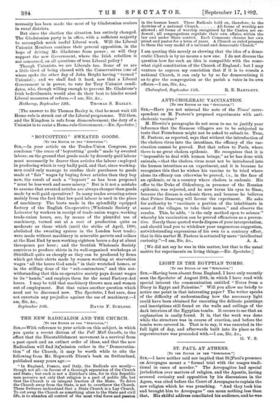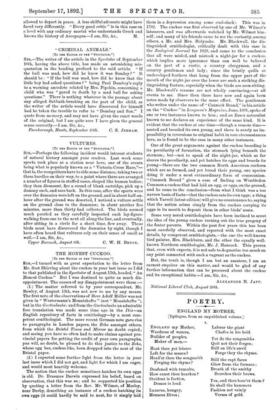ST. PAUL AT ATHENS.
[TO THE EDITOR OF THE " SPECTATOR,"]
have neither said nor implied that St.VPattl's presence on Areopagus meant a "formal trial with the usages tradi-. tional in cases of murder." The Areopagites had special jurisdiction over matters of religion, and the Apostle, having aroused curiosity and opposition by his discussions in the Agora, was cited before the Court of Areopagus to explain the new religion which he was preaching. "And they took him and brought him to Areopagus" can mean nothing less than. that. His skilful address conciliated his audience, and he was. allowed to depart in peace. A less skilful advocate might have fared very differently. "Every good critic" is in this case on a level with any ordinary mortal who understands Greek and knows the history of Areopagus.—I am, Sir, &c., M.



































 Previous page
Previous page